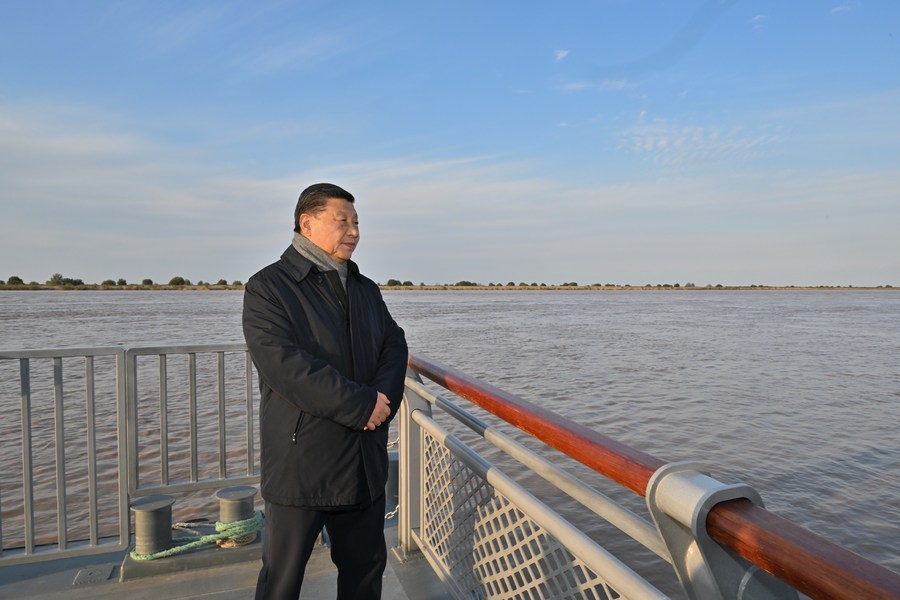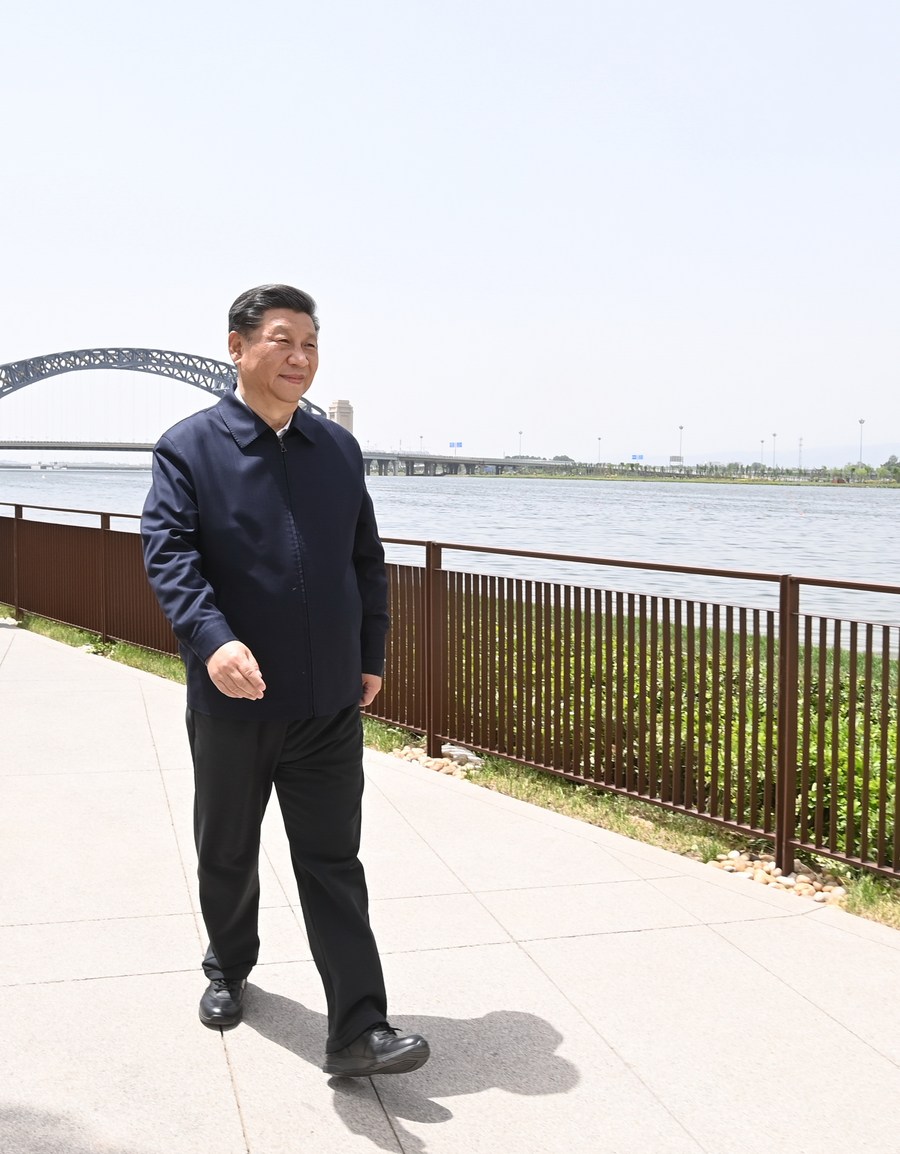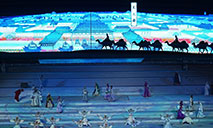Xi and the great Yellow River

President Xi Jinping checks the Yellow River's waterways and learns about the ecological protection and high-quality development of the Yellow River basin at a dock as he inspects the estuary of the Yellow River in the city of Dongying, east China's Shandong Province, Oct. 20, 2021. (Xinhua/Li Xueren)
BEIJING, Oct. 22 (Xinhua) -- Many of the world's ancient civilizations developed in or around river basins. In China, that river is the Yellow River.
For more than 3,000 years, the Yellow River basin had been the political, economic, and cultural centers of the country. It witnessed the birth of the four era-defining inventions in ancient China, including printing techniques, papermaking, gunpowder and the compass. It is also the place where the Book of Songs and other ancient Chinese classics were written.
Today, more than 400 million people live in the Yellow River basin, which plays a crucial role in the nation's ecological and food supply systems. Yet, the river had experienced soil erosion, sand and silt invasion, floods, river course changes, and bank collapses for millennia. Little wonder then that Chinese President Xi Jinping has given the river a tremendous amount of attention.

President Xi Jinping checks the Yellow River's waterways and learns about the ecological protection and high-quality development of the Yellow River basin at a dock as he inspects the estuary of the Yellow River in the city of Dongying, east China's Shandong Province, Oct. 20, 2021. (Xinhua/Wang Ye)
On Wednesday, Xi, also general secretary of the Central Committee of the Communist Party of China and chairman of the Central Military Commission, inspected the estuary of the river in Shandong Province.
During the inspection tour, Xi visited a dock, an ecological monitoring center and a national-level nature reserve of the Yellow River Delta. He also checked the river's waterways, the ecological environment of the wetlands in the river delta, and learned about the ecological protection and high-quality development of the Yellow River basin.
The Chinese president has visited all provincial regions the Yellow River runs through, and has been to river banks on multiple occasions.

Aerial photo taken on Sept. 12, 2020 shows a view of the Yellow River in Jiyuan City, central China's Henan Province. (Xinhua/Hao Yuan)
An often-used word by Xi in these inspections is "protection." To Xi, who has underscored the notion that "lucid waters and lush mountains are invaluable assets," the river's environmental protection must follow a holistic approach. Mountains, rivers, forests, farmlands, lakes, and grasslands must be conserved, and industry must develop in harmony with the natural environment.
Following this principle, the central authorities issued a development outline in October, setting the course of conservation and high-quality development of the Yellow River basin to 2030 and beyond.
Xi has also personally seen to it that all the regions in the river basin take up their due responsibilities in protecting the river's ecological system.

President Xi Jinping checks the ecological protection work of the Fenhe River in Taiyuan, capital city of north China's Shanxi Province, May 12, 2020. (Xinhua/Li Xueren)
His instructions spurred the regions to initiate a series of programs to restore the environment and eco-system of the river basin. In 2020, when Xi visited Shanxi, he set aside time for a walk by the Fenhe River, the second-largest tributary of the Yellow River.
Deeply impressed by the profound changes of the environment, which was once heavily polluted, he congratulated the locals for their efforts.
In recent years, such efforts have become common sights along the river basin, and the effects are remarkable. By the end of 2020, soil erosion has been brought under preliminary control in more than 250,000 square kilometers in the Yellow River basin, while the area of soil erosion decreased by 48 percent from that of 1990.
Photos
Related Stories
- Xi urges notable progress in ecological protection, high-quality development of Yellow River basin
- Answer the questions of the times and make historical choice with confidence, courage and sense of mission
- China seeks to benefit all by building community with shared future for mankind
- Xi sends birthday greetings to Nobel laureate Chen Ning Yang
- Xi extends greetings ahead of Chinese farmers' harvest festival
Copyright © 2021 People's Daily Online. All Rights Reserved.










